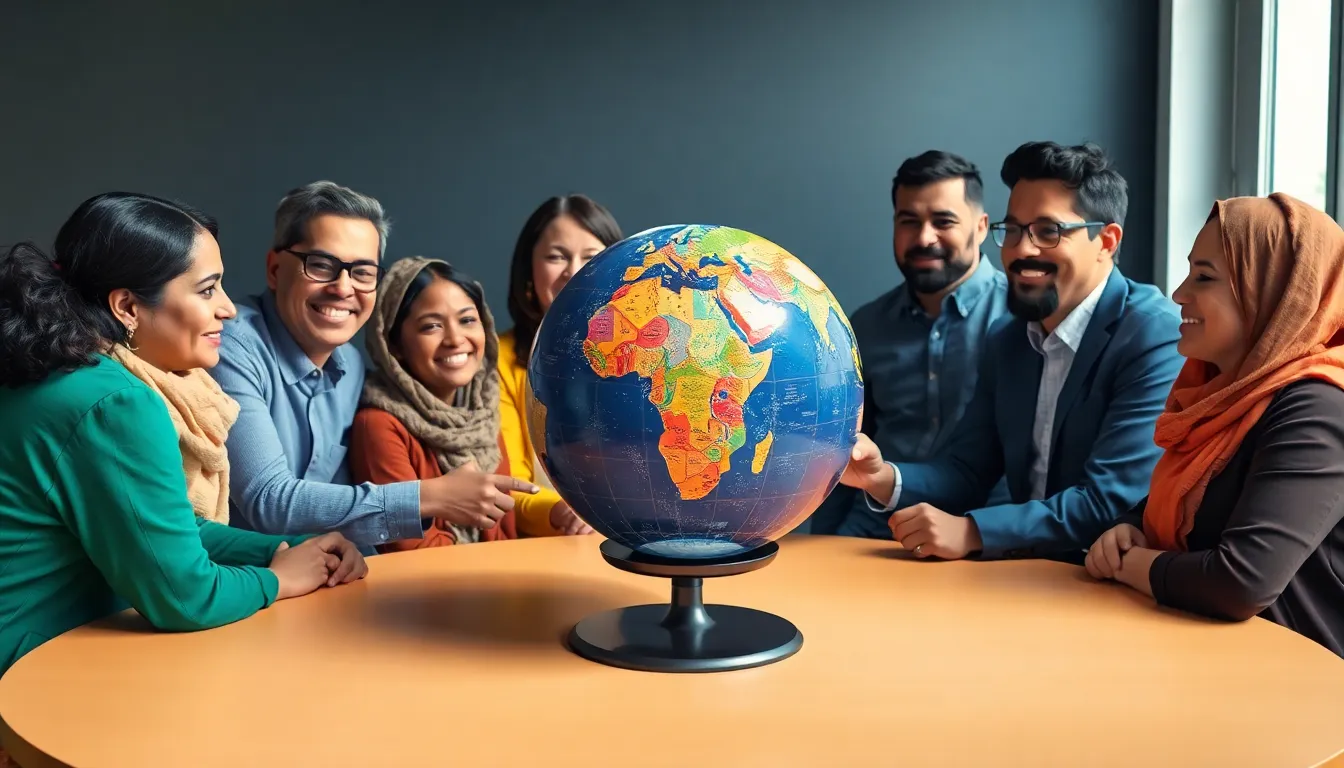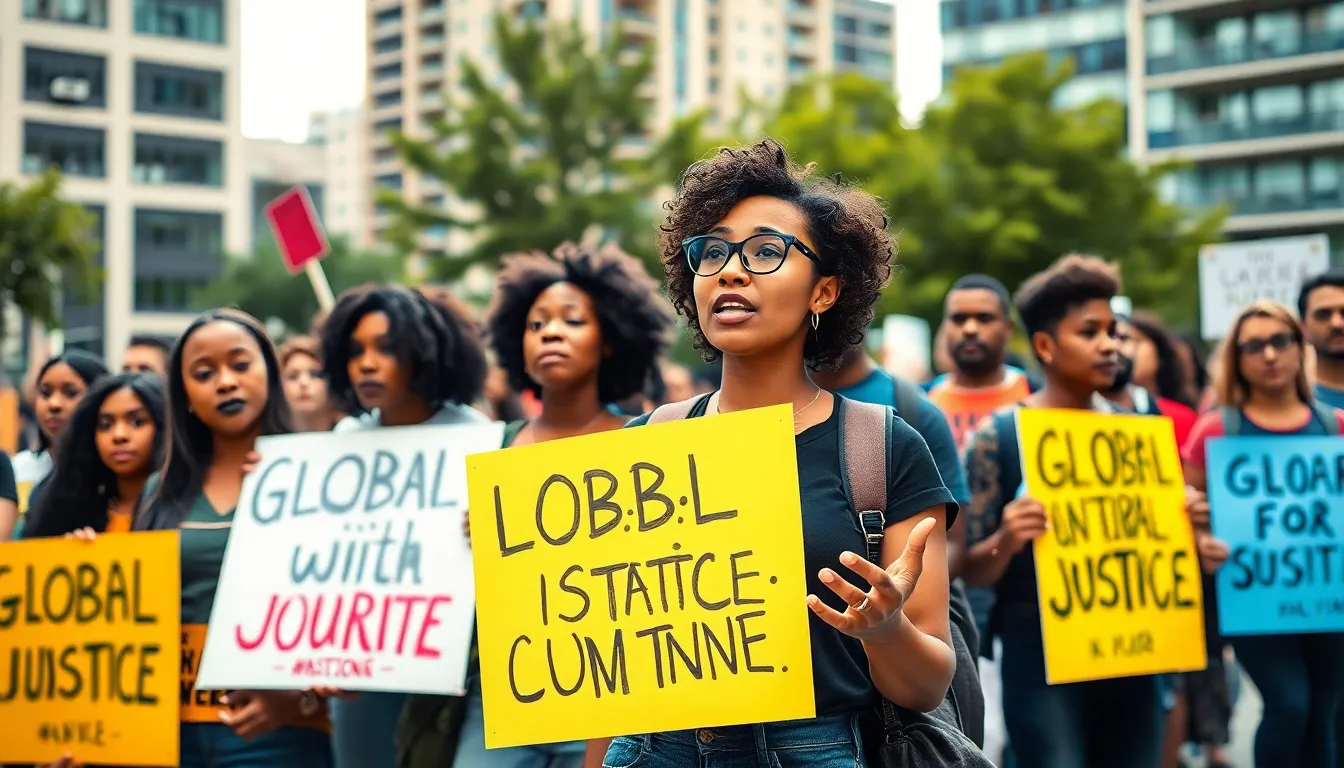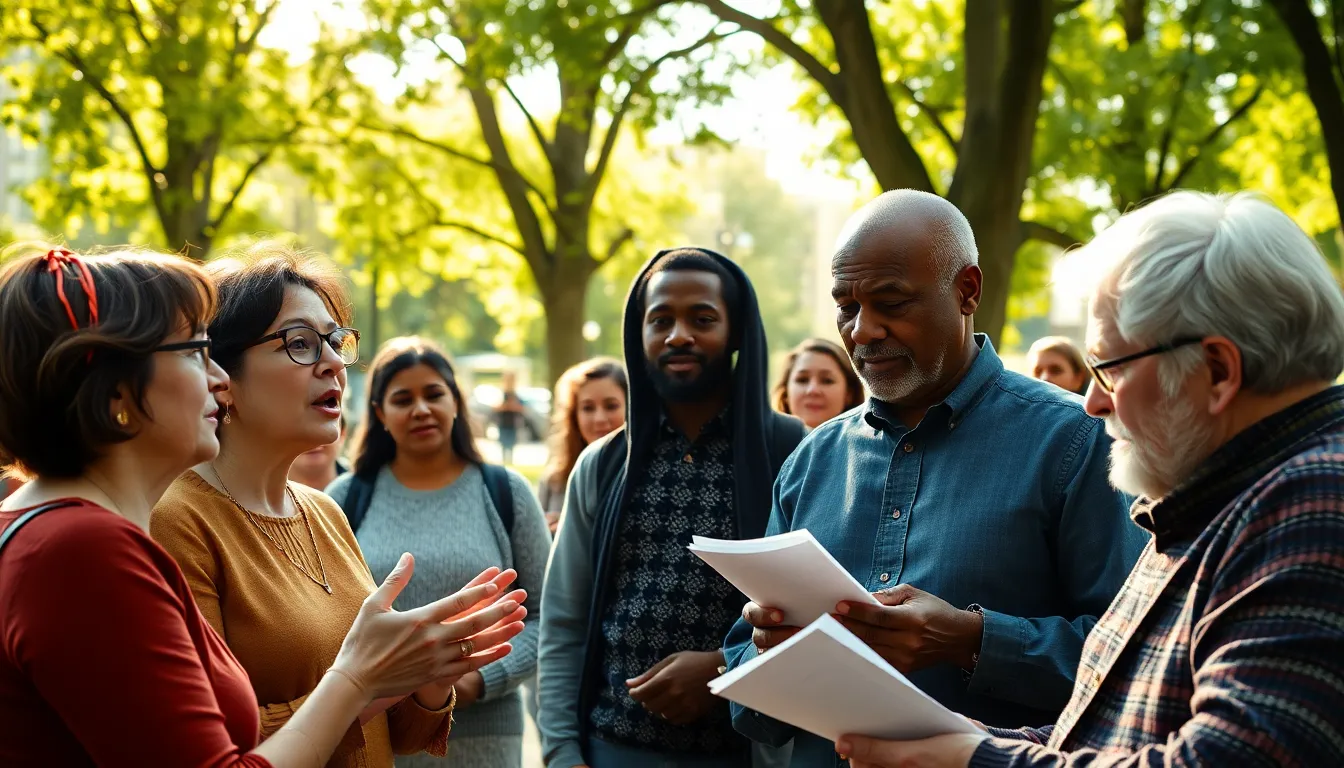In an increasingly interconnected world, the concept of global justice has gained significant attention. It challenges individuals and nations to consider their responsibilities beyond borders, prompting a reevaluation of fairness, equity, and moral obligations on a global scale. As issues like poverty, climate change, and human rights violations transcend national boundaries, the need for a collective approach becomes undeniable.
Global justice isn’t just an academic debate; it affects real lives and shapes policies that impact millions. It calls for a deeper understanding of how resources are distributed and how power dynamics play out across different societies. By exploring the principles and implications of global justice, one can uncover pathways to a more equitable future for all.
Table of Contents
ToggleUnderstanding Global Justice
Global justice addresses fairness and equity on an international scale, emphasizing shared responsibilities among individuals and nations. It encompasses various issues, including poverty eradication, climate action, and the protection of human rights.
Definition and Key Concepts
Global justice refers to the idea that all people, regardless of nationality or location, possess equal moral worth and deserve fair treatment. Key concepts include:
- Distributive Justice: This principle focuses on the equitable allocation of resources and wealth across nations. It strives to ensure that all individuals access necessary resources for a dignified life.
- Human Rights: Universal rights, as outlined by documents like the Universal Declaration of Human Rights, assert that every person should enjoy fundamental freedoms and protections, irrespective of where they reside.
- Responsibility: Nations and individuals bear obligations to support global well-being. This includes aiding poorer countries and addressing environmental degradation that affects everyone.
- Interconnectedness: The global nature of challenges such as climate change and migration highlights that local actions can have far-reaching consequences, necessitating a collective response.
Historical Context
The evolution of global justice can be traced through significant historical events and movements.
- Post-World War II: The establishment of international organizations like the United Nations underscored the importance of human rights and collective security. The UN’s founding Charter prioritized peace and international cooperation.
- Decolonization: In the mid-20th century, many nations gained independence. The struggle against colonialism emphasized the need for justice and equity in international relations.
- Globalization: The late 20th century saw increased interconnectedness between countries, making it clear that global justice issues require coordinated efforts.
- Contemporary Movements: Recent initiatives, such as the Sustainable Development Goals (SDGs), reflect an ongoing commitment to address global injustice by promoting social, economic, and environmental sustainability.
Theoretical Frameworks of Global Justice

Theoretical frameworks of global justice provide various lenses through which to understand fairness and equity across nations and individuals. These frameworks inform policy debates and shape collective action on pressing global challenges.
Liberal Theories
Liberal theories emphasize individual rights and freedoms as fundamental principles of justice. They argue that each person possesses inherent worth, leading to concepts such as equal opportunity and individual autonomy. Prominent thinkers like John Rawls advocate for distributive justice, proposing that societies should ensure a fair distribution of resources to address inequalities. Liberal theories support global justice by calling for the implementation of international institutions that protect human rights and promote democracy. Such institutions underpin global cooperation and foster equitable outcomes across diverse populations.
Communitarian Perspectives
Communitarian perspectives stress the importance of community and shared values in discussions of global justice. They argue that an individual’s identity and obligations derive from their social context. This approach highlights the role of cultural groups and localized traditions in shaping justice perceptions. Communitarians emphasize responsibilities over rights, advocating for policies that reflect collective wellbeing rather than solely individual interests. Through this lens, global justice incorporates the unique cultural contexts that influence societal needs and goals, promoting a more holistic approach to ethical global engagements.
Contemporary Issues in Global Justice
Contemporary global justice encompasses pressing issues that demand attention and action. Economic inequality and human rights violations exemplify the challenges requiring collaborative efforts to create sustainable solutions.
Economic Inequality
Economic inequality refers to the uneven distribution of wealth and resources within and among nations. It manifests in various ways, including income disparities, access to education, and healthcare resources. In 2021, the richest 1% held 44% of global wealth, a stark contrast to the 3.5 billion individuals who own just 1% of assets (Credit Suisse). This disparity leads to social unrest and hampers economic development in poorer communities. Tackling economic inequality involves addressing systemic barriers, implementing fair taxation policies, and promoting access to quality education and vocational training. Initiatives like the European Union’s Just Transition Mechanism aim to address inequality exacerbated by the climate crisis, illustrating a commitment to equitable resource distribution.
Human Rights Violations
Human rights violations represent significant injustices affecting individuals and communities globally. These violations encompass discrimination, persecution, and denial of basic freedoms. In 2022, over 319 million people experienced severe human rights restrictions (Freedom House). Countries grappling with authoritarian regimes often see the most egregious violations, including suppression of free expression, unjust detentions, and torture. Enhancing global justice requires robust international mechanisms to hold violators accountable, such as the International Criminal Court, and fostering partnerships among governments, non-governmental organizations, and civil society to promote transparency and uphold human rights. Advocacy for marginalized groups, combined with pressure on governments to reform, remains vital in combating widespread injustices.
Global Justice Movements
Global justice movements play a crucial role in addressing issues that transcend national boundaries and require collective action. These movements encompass grassroots activism and the efforts of international organizations, each contributing significantly to the advancement of global justice.
Grassroots Activism
Grassroots activism forms the backbone of many global justice movements. Individuals and local communities advocate for change from the ground up, addressing specific injustices such as poverty, environmental degradation, and human rights abuses. Activists organize protests, campaigns, and educational initiatives to raise awareness and foster community engagement. Examples include movements like Black Lives Matter, which addresses systemic racism and police brutality, and Fridays for Future, advocating for climate action driven by youth activism. These grassroots efforts emphasize local voices and empower disadvantaged communities to demand equitable treatment and justice.
International Organizations
International organizations are pivotal in promoting global justice on a larger scale. Institutions such as the United Nations, Amnesty International, and Oxfam establish frameworks for cooperation and advocacy. They monitor human rights abuses, provide humanitarian aid, and facilitate dialogues among nations to address global issues. For instance, the United Nations has implemented Sustainable Development Goals (SDGs) that aim to eradicate poverty and ensure sustainable development by 2030. These organizations also focus on establishing legal standards to hold governments accountable and promote social, economic, and environmental justice across the globe, influencing national policies and global norms.
Global justice is essential in addressing the interconnected challenges of today’s world. As individuals and nations recognize their shared responsibilities, the pursuit of fairness and equity becomes increasingly urgent. The collective action of grassroots movements and international organizations plays a pivotal role in advocating for change and holding violators accountable.
By prioritizing systemic reforms and promoting human rights, societies can work towards a more equitable future. Understanding the dynamics of global justice empowers individuals to contribute meaningfully to the fight against poverty and inequality. A commitment to these principles not only enhances global well-being but also fosters a more just and sustainable world for generations to come.



